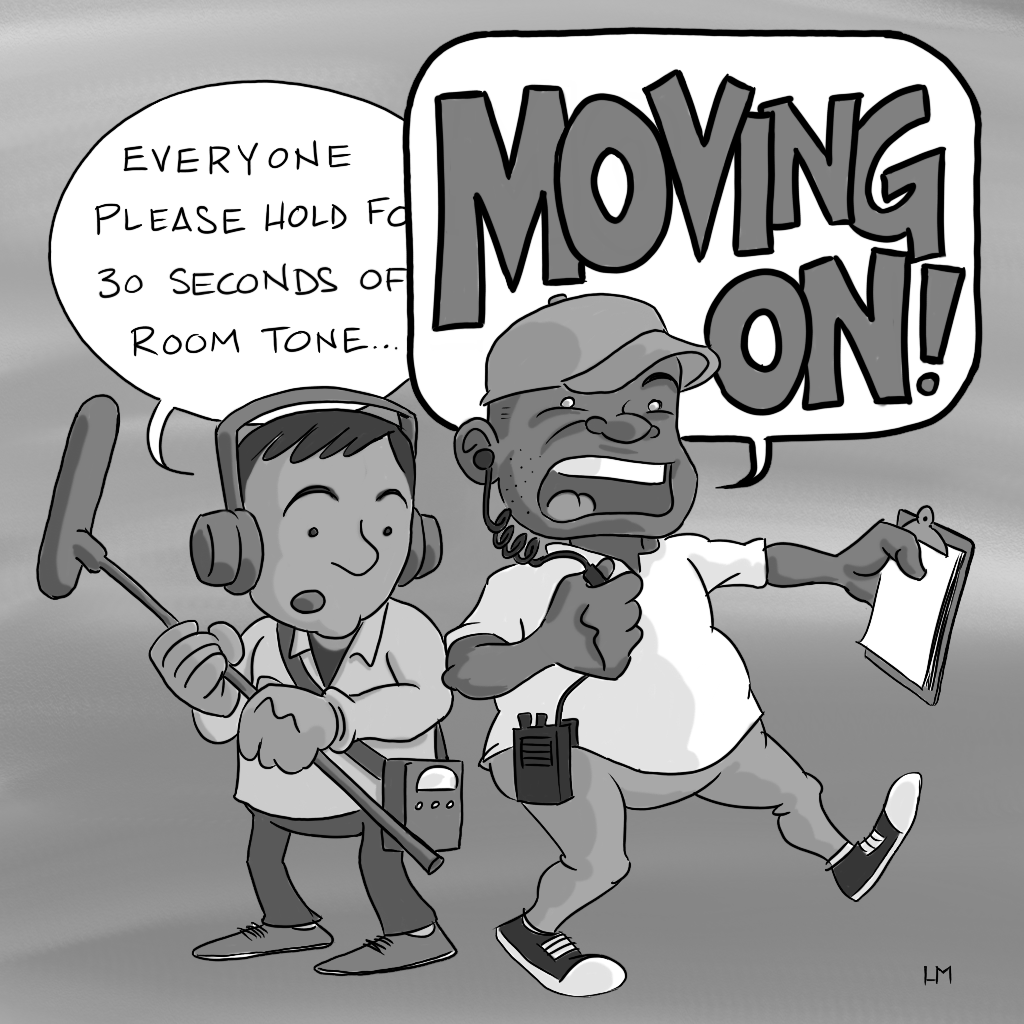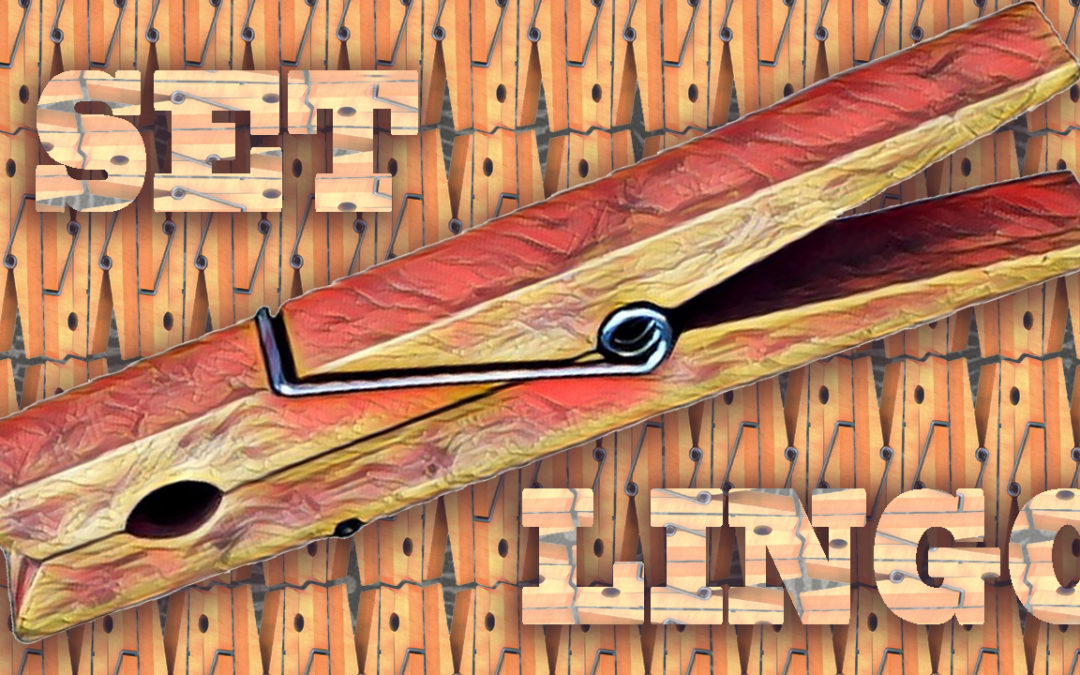Like any other profession, filmmaking has its own specialized lingo. Many of these terms you will only hear on set, but being familiar with them could be crucial to your success in this business. For instance, you might panic the first time you are asked to track down a C-47. Relax. We’ve got you covered.
As a public service from your friends at Lunacy, here’s some common on-set terminology you should know:
10-1 (ten-one) – Pee break. And yes, there is also a 10-2, although most people don’t feel the need to be that specific.
“Do we have enough time before the next take for our director to 10-1?”
“Can we 86 the table lamp? It’s blocking the actor’s face.”
“We need to raise that table into frame. A half apple under each leg ought to do it.”
“It was bright out so the grips set up a courtesy over video village.”
DOODs – These are charts that provide a fast reference for which shoot days the actors are working, traveling, resting, etc. It’s an acronym for day out of days, which sounds much more poetic, but is also complete gibberish.
“Can you send me the latest DOODs?”

“I’m going to do one last dummy check before we load out.”
DP: “We don’t have enough light to shoot this scene.”
Executive Producer: “Can’t we fix it in post?”
grace – After six hours of work, the crew is entitled to a meal break (even non-union crews usually observe this as standard operating procedure, and smart producers respect it regardless of union status). Running past this break could incur a meal penalty, but occasionally a First AD will ask his crew for grace, a rare exception to keep working into the meal time. On a good set the crew is as committed to getting the shot as anyone, and if the First AD and producers have been treating them right, a call for grace is usually a formality.
“Make sure you greek the labels on all those soda bottles. We don’t have clearance for any of those brands.”
“We are shooting the head chopping gag next, so keep the hero axe handy.”
last looks – The final opportunity for the hair, makeup, wardrobe, and set dressers to make any last minute adjustments before the camera starts rolling. Usually called by the First AD before every take.
Clint Eastwood, coincidentally, has a reputation for shooting quickly and efficiently and always making his day.
“Despite a few setbacks we were still able to make our day.”
“If you shoot this scene M.O.S. your sound editor will want to murder you!”
“No need to dress the set this weekend. We’ll have time to do it on the day.”
“We’ll get our last shot at 11:15, tail lights at midnight.”
“While we’re shooting at the park, see if you can steal some walla from the people near the zoo.”
Room tone is about thirty seconds of ambient sound recorded in the same environment where a scene was just shot.
Time permitting, these are both very helpful tools when sound editing the film later. But any soundie will tell you, time is almost never permitting.


